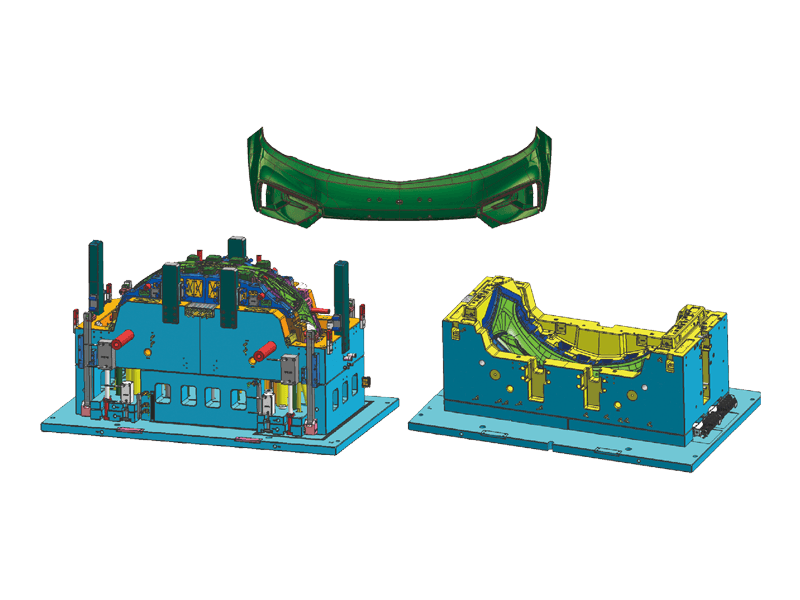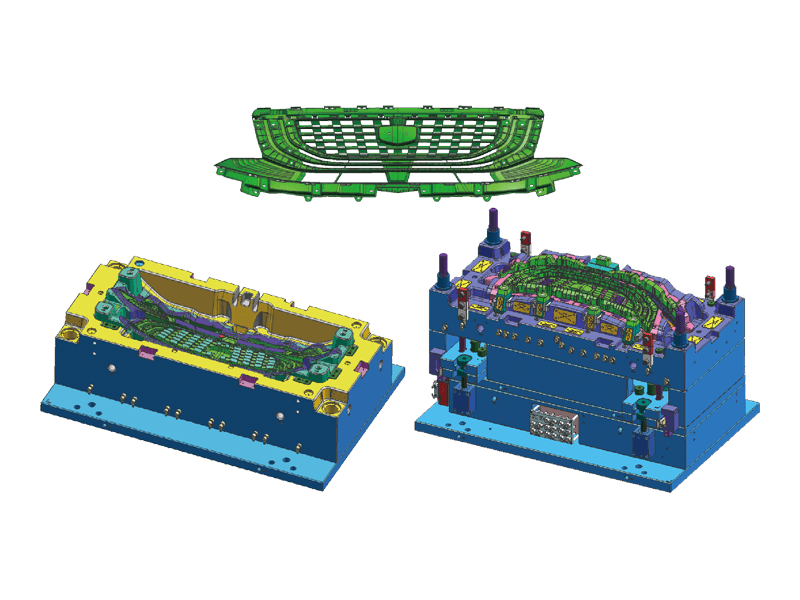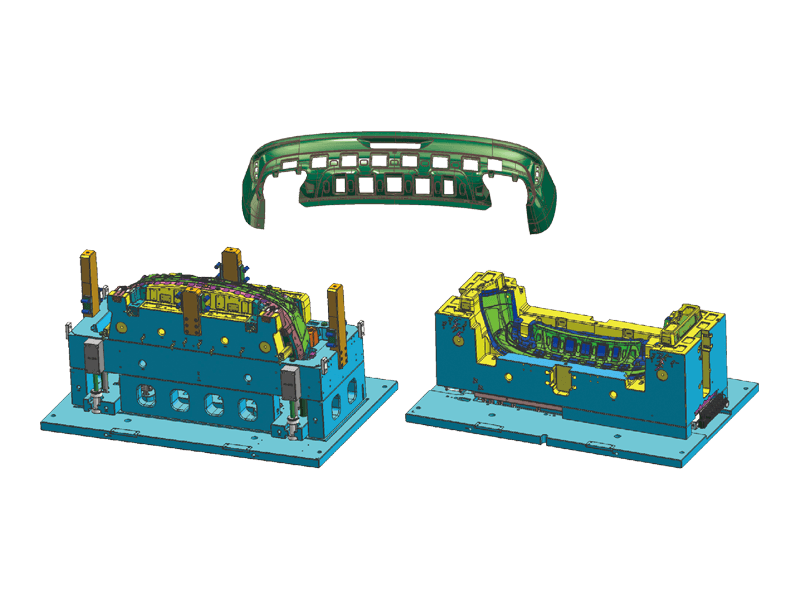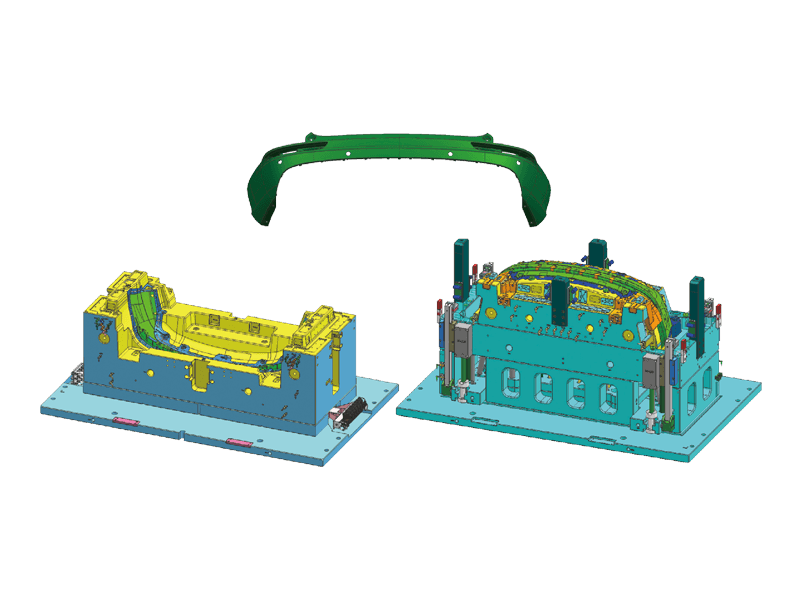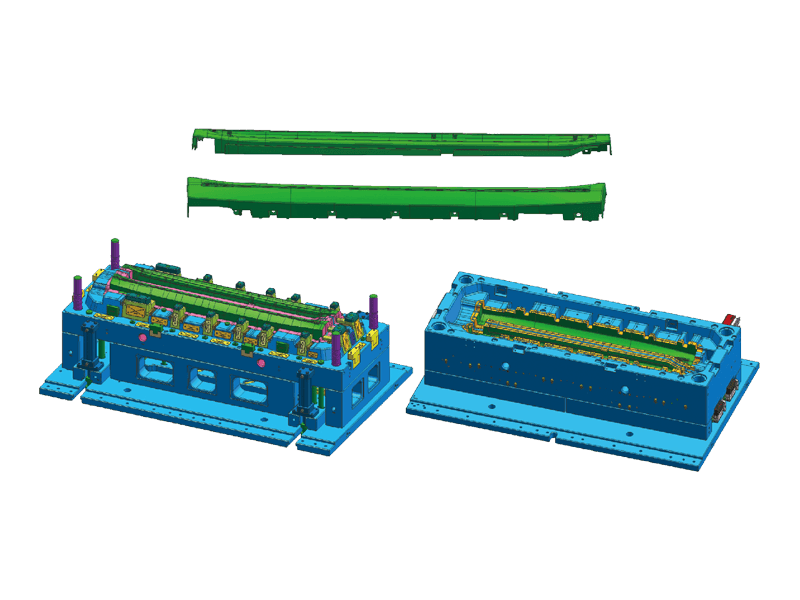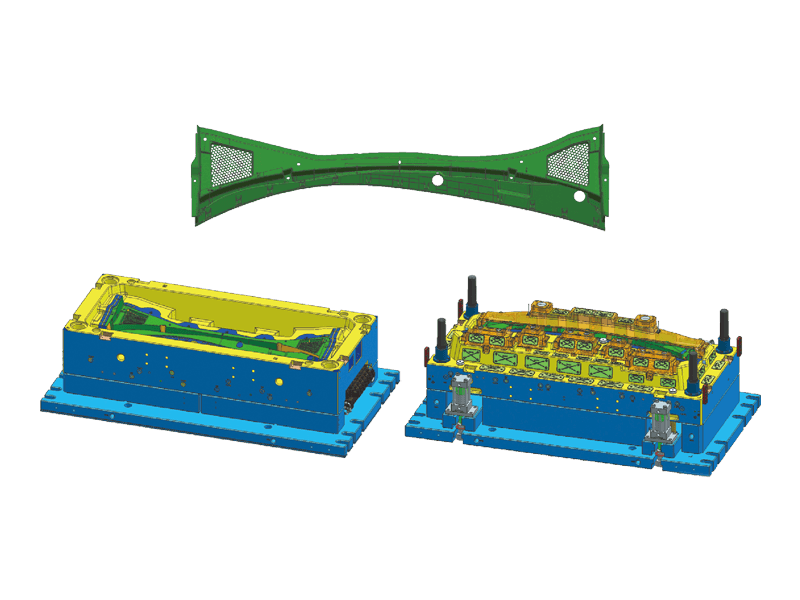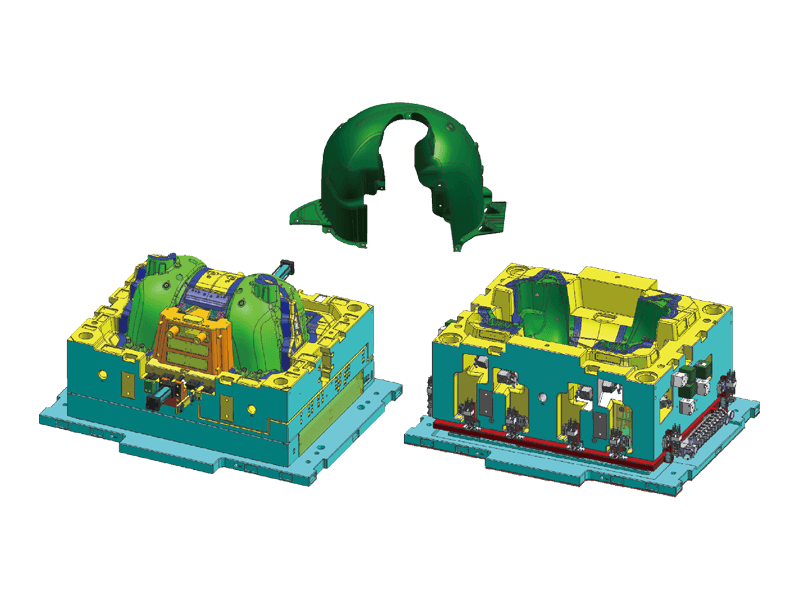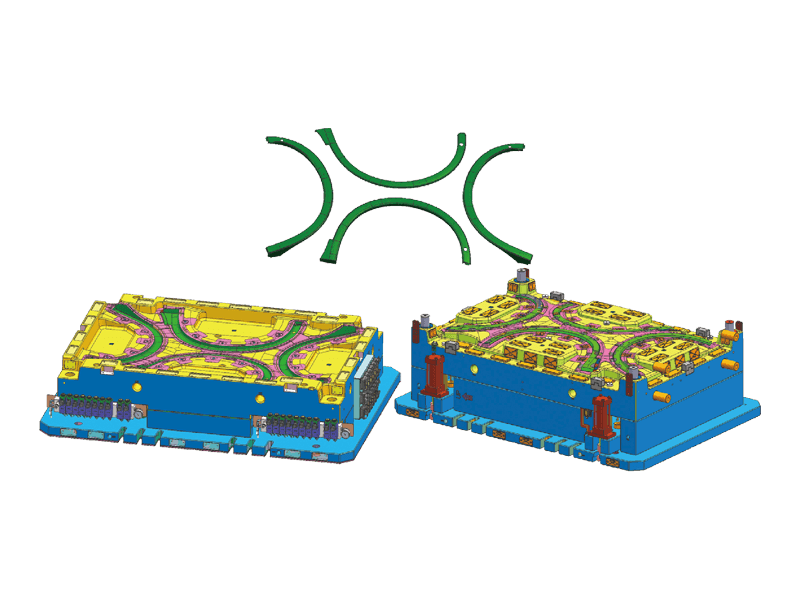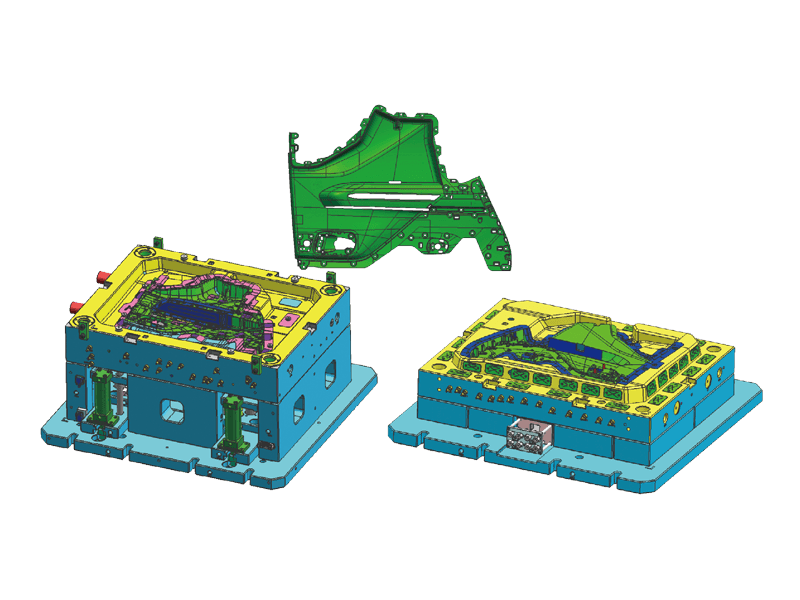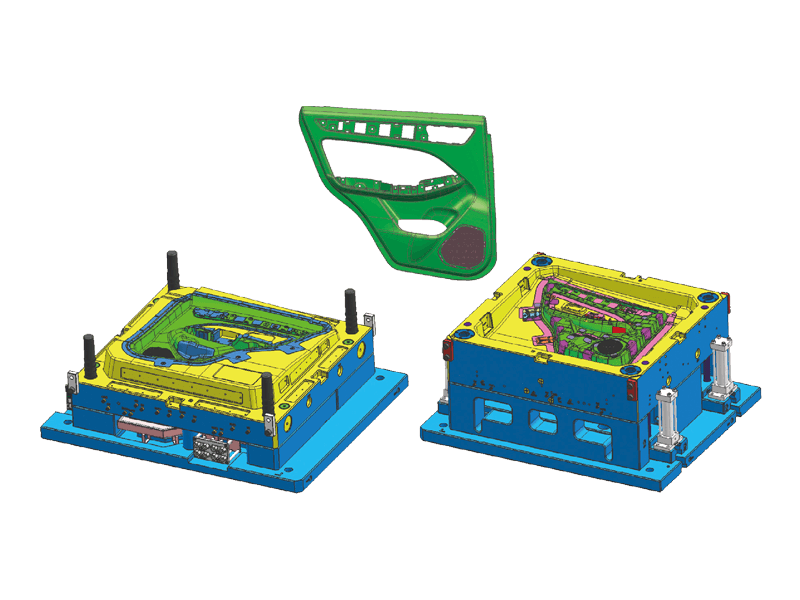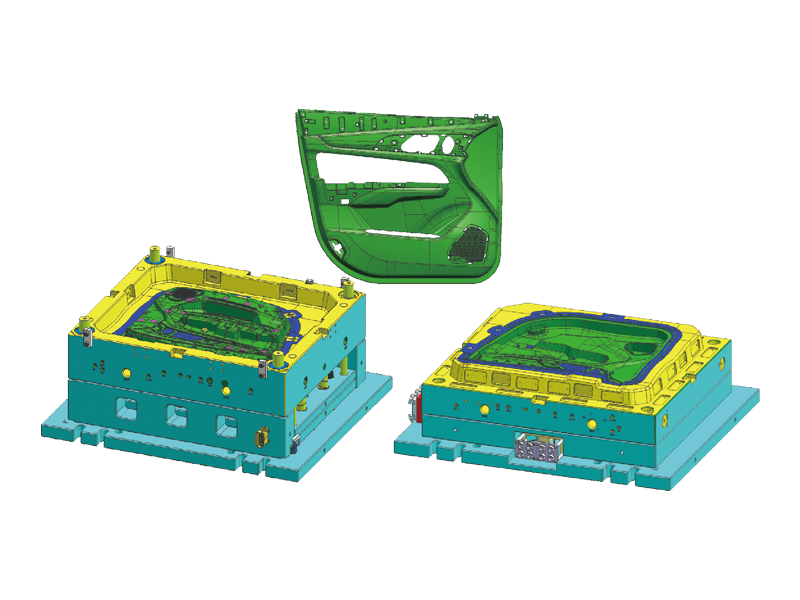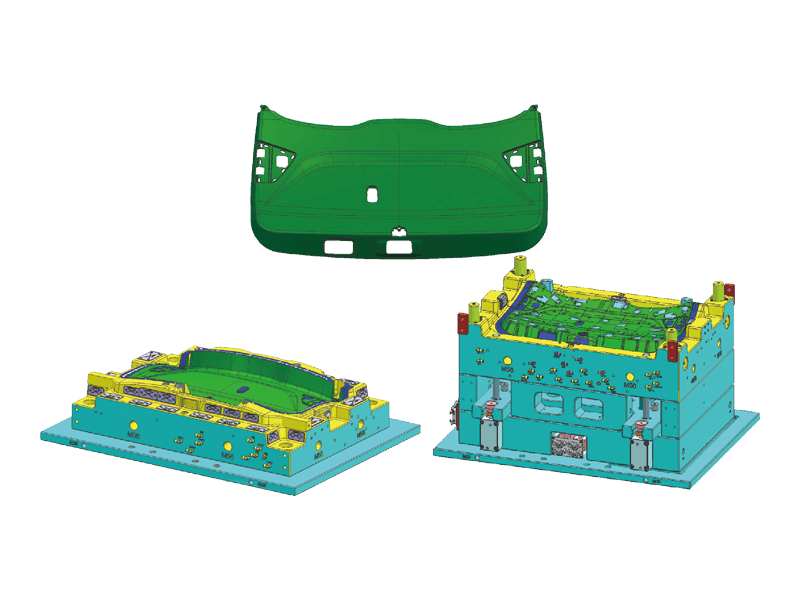The automotive industry is in a constant state of evolution, driven by demands for enhanced safety, efficiency, and aesthetic appeal. One crucial innovation that has transformed vehicle interior design is the Plastic Instrument Panel Injection Mold. This technology has become a cornerstone in the production of complex automotive parts, particularly in the creation of instrument panels that meet both functional and aesthetic requirements. With advancements in injection molding processes and materials, the Plastic Instrument Panel Injection Mold is enabling automakers to create high-quality, durable, and visually appealing dashboard components.
What is a Plastic Instrument Panel Injection Mold?
A Plastic Instrument Panel Injection Mold is a tool used to create plastic components for vehicle instrument panels, such as dashboards, gauge clusters, air vents, glove boxes, and switch housings. The process involves injecting molten plastic into a precisely engineered mold under high pressure, which then cools and hardens into the desired shape. Once solidified, the component is removed from the mold and undergoes further finishing processes like trimming, painting, or assembling additional parts.
The Plastic Instrument Panel Injection Mold is an essential part of modern vehicle production, as it allows manufacturers to produce highly intricate, complex, and precise components that are lightweight, durable, and cost-effective. The mold is often used with a variety of thermoplastic materials, such as ABS, polycarbonate, and polypropylene, which offer different properties such as high impact resistance, heat tolerance, and flexibility.
Advantages of Using Plastic Instrument Panel Injection Molds
One of the primary advantages of the Plastic Instrument Panel Injection Mold is its ability to produce components with high precision and consistency. As the instrument panel is one of the prominent features inside a vehicle, its design and functionality are critical to the overall user experience. Injection molding ensures that every part is produced to exact specifications, resulting in a seamless fit and finish.
Additionally, the Plastic Instrument Panel Injection Mold allows for the integration of multiple features into a single component. For example, it is possible to incorporate air vents, switches, and bezels directly into the dashboard assembly, reducing the need for separate parts and assembly steps. This streamlines production and minimizes the overall weight of the vehicle, a key consideration for manufacturers aiming to improve fuel efficiency and performance.
The flexibility of injection molding is another advantage. The Plastic Instrument Panel Injection Mold can be used to create a variety of textures, patterns, and finishes, allowing manufacturers to offer a wide range of interior designs. For instance, dashboards can be designed with smooth, glossy surfaces, or textured finishes that mimic natural materials like wood, metal, or carbon fiber. This versatility helps automakers meet the growing demand for customizable interiors that appeal to diverse consumer tastes.
Cost-Effectiveness and Efficiency
The Plastic Instrument Panel Injection Mold is highly efficient, allowing manufacturers to produce large quantities of high-quality parts at a relatively low cost. The ability to produce complex parts in a single molding cycle reduces the need for additional processes like machining, welding, or assembling separate components. This not only cuts production costs but also accelerates time-to-market, enabling automakers to respond quickly to changing consumer preferences and market trends.
Furthermore, the injection molding process is scalable, meaning that manufacturers can easily adjust production volumes based on demand. This makes the Plastic Instrument Panel Injection Mold an ideal solution for both high-volume production runs for mass-market vehicles and smaller production runs for premium or specialized vehicles.
Durability and Safety
The Plastic Instrument Panel Injection Mold is crucial in ensuring that vehicle interiors meet stringent durability and safety standards. The materials used in the molding process, such as ABS and polycarbonate, are known for their high impact resistance and ability to withstand wear and tear over time. These materials are essential for producing dashboards that maintain their structural integrity and appearance, even under conditions.
In addition, the Plastic Instrument Panel Injection Mold plays a key role in meeting safety requirements. Instrument panels must be designed to withstand forces during collisions, and the materials used must be capable of absorbing and distributing impact energy. The precision of the injection molding process ensures that safety features, such as airbag deployment zones, are accurately incorporated into the dashboard design.


 English
English 中文简体
中文简体